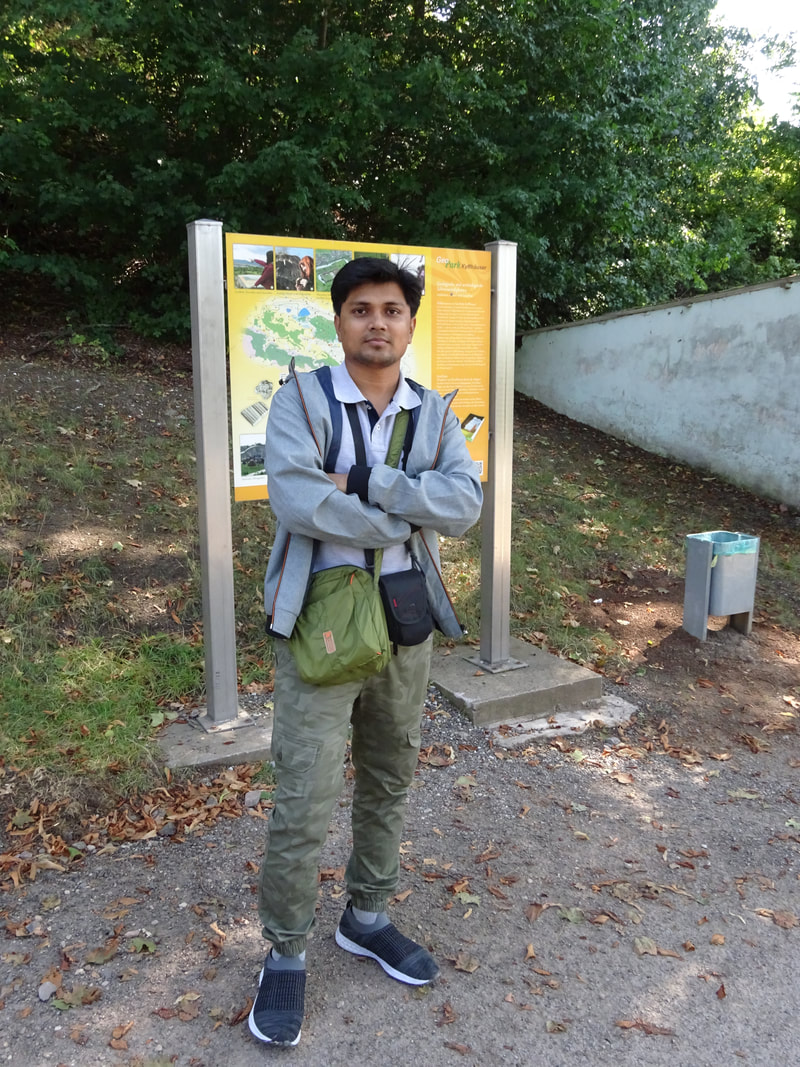For me, ecohydrology is a relatively new field which has piqued my interest because it is and will be the need of the hour in our highly degrading and modified biosphere. I see a bright future in the field of eco-hydrology due to its flexibility in integrating different scientific disciplines in problem solving. The spatio-temporal interaction between ecological systems and the hydrological cycle, which facilitates us to understand the interface between ecology, hydrology, and the associated application, is the new frontier in Human Landscapes studies.
What are your undergraduate and graduate degrees in?
I have completed an integrated Master of Technology (B.Tech.+ M.Tech.) degree in Electronics and Communication Engineering with specialization in Wireless Communication and Networks from Gautam Buddha University, Greater Noida, India in 2017. I was the recipient of the gold medal award in the university. Presently, I am pursuing a Ph.D. from the Department of Earth and Environment Sciences at the Indian Institute of Science Education and Research Bhopal. Where I am working on "Potential of dual-frequency polarimetry Synthetic Aperture Radar (SAR) data processing to estimate soil moisture and its application in drainage congestion, waterlogging, and flood prediction using deep learning" under the supervision of Dr. Kumar Gaurav.
How did you arrive at working in/thinking about ecohydrology?
Being an interdisciplinary researcher, I love to explore the possible connection between two different physical processes, such as connecting the surface soil moisture with waterlogging problem. This further raised my curiosity on a contemporary health issue in the region which led to connecting waterlogging with the number of malaria cases or with groundwater contamination.
What do you see as an important emerging area of ecohydrology?
From my point of view, the study of the dynamics of surface and subsurface soil moisture, drainage congestion, and waterlogging is one of the most emerging areas mainly because these factors affect ecohydrological processes such as infiltration, surface runoff, evaporation, and plant morphology & function (i.e., transpiration rate).
Do you have a favorite ecohydrology paper? Describe/explain.
After my masters, I was a complete novice in this particular field, so my interest were objective driven. However, a work on the impact of flow regulation on the habitat of the Ganga River dolphin by Sonkar and Gaurav published in the River Research Application caught my attention. Their simple yet novel work inspired me to look beyond the scope of my research practice and indulge in asking more biodiversity-oriented research questions. Integrating the real time impact of man-made environmental issue on the ecology of a hydrological system is the need of the hour for any eco-sensitive zone. Another work, if I must mention is The Natural Flow Regime by Poff et al., 1997, which is quite known in the scientific community. This work provided an insight to a novice like me trying to understand dynamics between river hydrology and ecology and the necessary aspects one must take into consideration when working in eco-hydrology.
References:
Sonkar, G. K., & Gaurav, K. (2020). Assessing the impact of large barrages on habitat of the Ganga River dolphin. River Research and Applications, 36(9), 1916–1931.
Poff, N. L., Allan, J. D., Bain, M. B., Karr, J. R., Karen, L., Richter, B. D., Sparks, R. E., Stromberg, J. C., Poff, N. L., Allan, J. D., Bain, M. B., Karr, J. R., Prestegaard, K. L., Richter, B. D., Sparks, R. E., & Stromberg, J. C. (1997). The natural flow regime. A paradigm for river conservation and restoration. Oxford Journals, 47(11), 769–784.
What do you do for fun (apart from ecohydrology)?
I love to write scientific blogs on Medium (https://abhilash-singh.medium.com/). Apart from this, I enjoy spending time on learning other languages.

 RSS Feed
RSS Feed